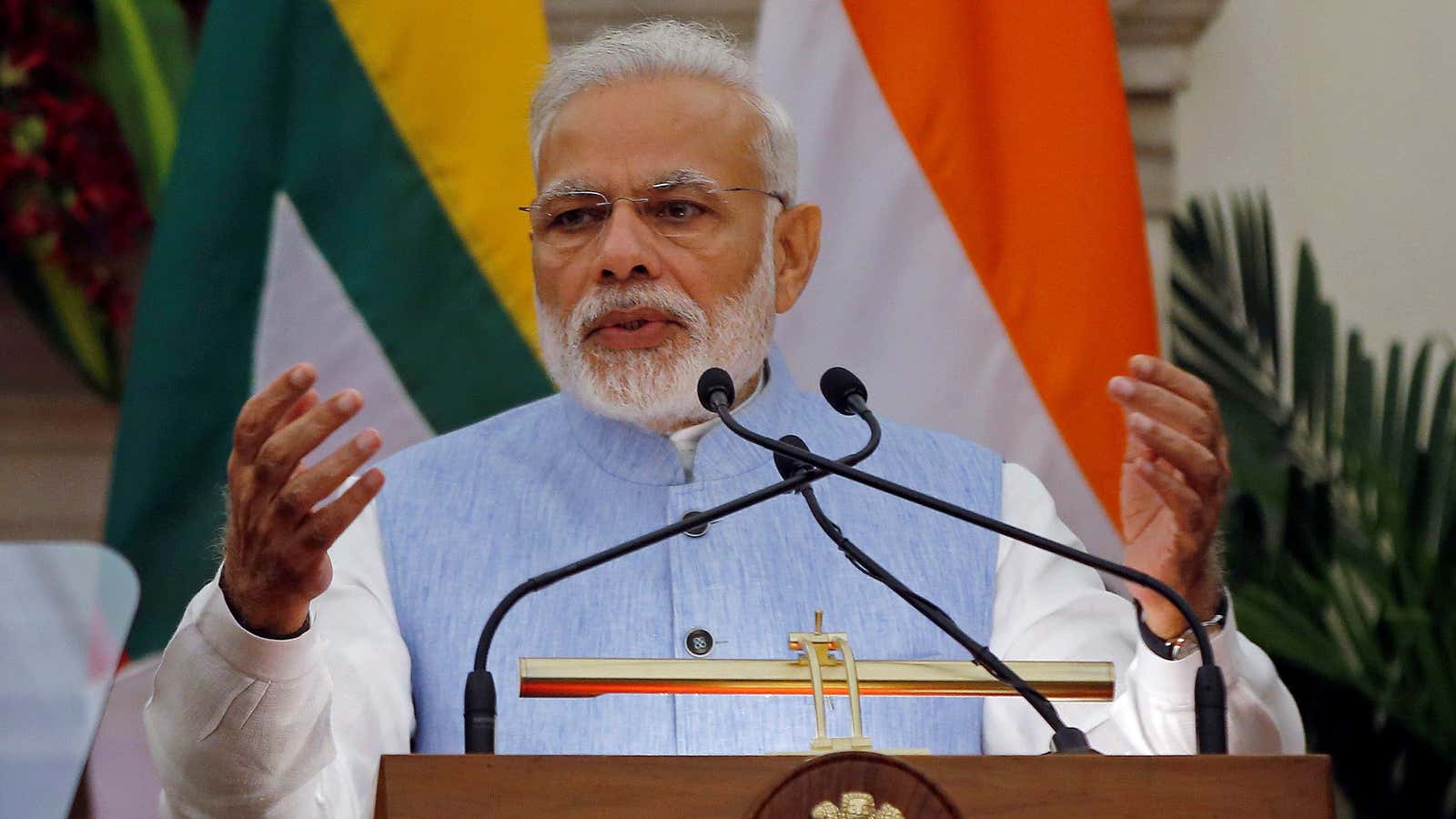Prime minister Narendra Modi on Nov. 25 hit back at the critics of the sudden move to demonetise currency notes of Rs500 and Rs1,000 denominations.
Modi said that those complaining are not concerned about the problems faced by the common man.
“There is little criticism of this decision of the government. But what are some people criticising it for? They are critical of the fact that the government did not prepare well,” Modi said in Hindi, speaking at a function in New Delhi to mark the occasion of Constitution Day. “The issue is not that the government was not well prepared. Such people are pained that the government did not give anyone time to prepare… If they had got even 72 hours to prepare, they would have praised me and my decision.”
Modi was alluding to those who may have hoarded unaccounted money in the banned denominations and may not have got the time to convert them after the government’s Nov. 8 announcement set a midnight deadline that very day. Over the past few days, he has often hinted at the discomfort caused to the opposition parties by demonetisation, which is aimed at curbing unaccounted wealth and counterfeit currency.
The surprise move and the resultant liquidity crunch have unleashed a frenzy since the two denominations made for 86% of the money in circulation by value.
Over the last two weeks, millions of Indians have been suffering severely, with serpentine queues forming outside banks and dysfunctional ATMs. At least 55 persons have reportedly died in the aftermath of demonetisation, many even killing themselves out of desperation.
Modi’s decision has polarised economists, with many praising the move and many others slamming it, particularly the execution.
On Nov. 24, former Indian prime minister and respected economist, Manmohan Singh, called the demonetisation drive an “organised loot and legalised plunder.”
“I do not disagree with these objectives. But what I do want to point out is that in the process of demonetisation, monumental mismanagement has been undertaken [applause] about which there are no two opinions in the country as a whole,” Singh said in the Rajya Sabha.
A day later, Modi said the common Indian had become a “soldier” in this fight against corruption and black money. “It’s a big country and the decision is big. I only appeal to those who see the country’s bright future, come let use together solve the common man’s problems (created by demonetisation),” he said.
“Whenever there are global surveys on corruption, India stands in the front line. We have to hang our heads in shame. We have to change that and to do that, we will have to take decisions and follow them,” Modi said, claiming that the exercise had already begun showing results.
The prime minister said that data from 40-50 civic bodies had shown their tax collections rising to Rs13,000 crore since Nov. 08, from Rs3,000-3,500 crore they were earning earlier.
Tech savvy
Indians must take to digital currency to overcome the ongoing cash crunch situation, Modi said.
“Everyone has a right to their money. But it’s not necessary that you use your money only when you have currency notes in your hands. You can use your mobile phones to spend money wherever you want,” Modi said.
“The country has 65% of its population below 35 years years of age, over 100 crore mobile phones… technology and mobilephones, too, facilitate businesses… all banks have their own mobile apps. So, why should we not encourage and train people?” he said. “And it is not a difficult task. We learnt to use WhatsApp… we did not go to an engineering or IT college for that. The ease with which people forward messages on WhatsApp is the same ease with which we can shop using our mobile phone.”
At least 500 cities in the country can move to digital currency within this week if they wish to, Modi said.
